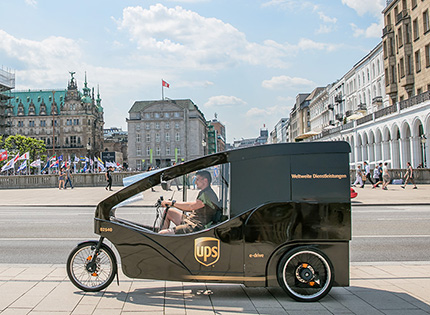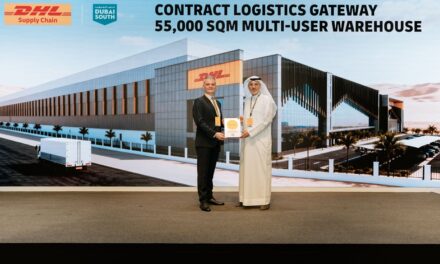
Sustainable Solutions

Peter Harris, Director of Sustainability, UPS Europe, explains how the global carrier is developing sustainable solutions for urban deliveries in the Summer edition of MER Magazine. PLEASE NOTE: This article was originally published in the Summer 2017 edition of MER Magazine. To read the whole article please subscribe to the digital edition of the magazine for free at http://digital.mailandexpressreview.com/.
David Abney, UPS CEO, said last year: “With more than 100,000 drivers logging more than 3bn miles per year, our future depends on our ability to meet the growing demand for global trade while reducing our impact on the environment”.
As one of the world’s largest transporters of packages and parcels, UPS has a responsibility to ensure that it does so in a responsible and efficient manner. Sustainability is central to UPS’s business strategy and we are constantly evaluating and improving our processes to ensure that the carbon footprint of each package we deliver is as low as possible, from initial collection through to final delivery.
The early stages of the delivery journey are inherently more efficient, as they involve high volumes of packages being delivered to a single destination, be that by truck, train, sea or air. Once these deliveries reach an urban setting, the sustainability question becomes somewhat more complicated.
Inner-city logistics present a range of challenges to logistics companies. It involves multiple collection and delivery locations in a densely-populated area, with factors such as traffic patterns and building and road works to take into consideration. As such, we have had to find innovative ways to make urban deliveries more efficient and sustainable.
Improving sustainability within urban deliveries can generally be achieved in three ways: ensuring that delivery routes are as efficient as possible, switching to low emission fuels and technologies, or removing delivery vans from an area altogether.
Reducing carbon emissions
Given the size and scale of many cities, vans will continue to play an important role in delivering parcels to both businesses and consumers. That is why UPS has adopted a rolling laboratory programme to evaluate and experiment with new vehicles, fuels and technologies. The rolling laboratory has been crucial in the development of two low-carbon technologies that now play a significant role in UPS’s urban logistics programme.
The first of these is electric vehicles, also known as EVs. UPS now operates 52 EVs out of its main London depot in Kentish Town, which are part of a 140-strong electric fleet within Europe. These vehicles are well suited for deliveries in densely populated areas, where the distances driven are relatively short…
This article was originally published in the Summer 2017 edition of MER Magazine. To continue reading please subscribe to the digital edition of the magazine for free at http://digital.mailandexpressreview.com/.








